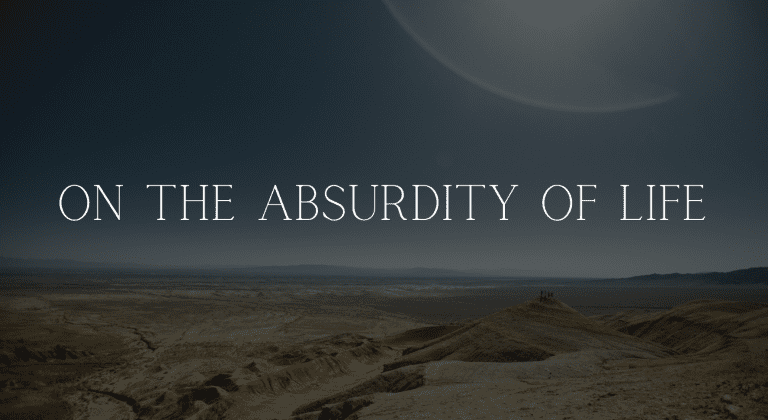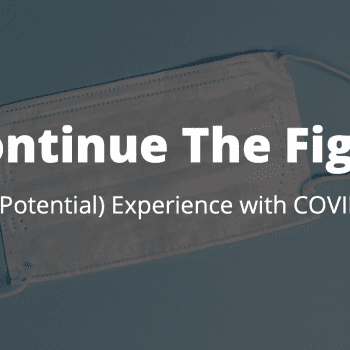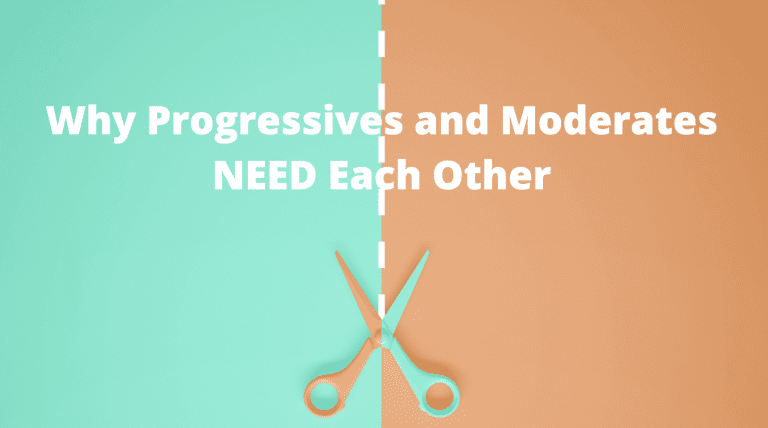**NOTE: This piece is written from the perspective of a gay Christian man. Therefore, the language and examples will reflect my perspective. However, these principles can be contextualized and applied to anyones perspectives!
Lets talk about sex, shall we?
There is probably no topic that can trigger both excitement and shame quite as much as sex. Especially if you grew up, like a majority of Americans, in a religiously influenced context, the topic (and practice) of sex has probably been something that has been surrounded by blushes, hushes, and an ever-present sense of guilt.
But can sex be spiritual? Or rather, can someone be sex-positive and embrace a robustly spiritual, or even religious, worldview?
I say “absolutely”! But it’s going to take some work.
See, we live in a culture that has largely been shaped by a religious ideology that views sex as “sacred”, which in this context really means “shameful”. Sex is something not to be talked about at any length, and if it is, it’s only spoken of as this mysterious act between two people (usually thought to be of the opposite sexes). It’s never meant to be viewed as means of pleasure or connection outside of the context of marriage.
These ideas are largely rooted in a bad Christian philosophy of sexuality that is embedded in our Western culture. Though the entire message of Christianity is one that teaches that the body is sacred and that our embodied existence is what life is all about, a gnostic knock-off ideology became the primary way that Christians taught about sex and sexuality, believing ultimately that the body was bad and finite and that our focus should be on the soul and the afterlife instead. It is this subtle message- the body is infected with sin and will perish, while your soul can be saved and live forever- that undergirds the Christian message of sexuality that has shaped our cultural mindset about sex.
But things are changing. These tired, old sexual ethics that tell us that our bodies are sinful and that sex is not meant to enjoyed outside of the context of one heterosexual relationship in each persons lifetime are being proven to be ineffective, inaccurate, and extremely damaging. We, as a culture, are rediscovering the reality that sex and sexuality is an expansive aspect of human existence that cant really be dictated or defined by any one person, institution, or set of ethics. We are discovering that we embrace sex and sexuality openly; we actually become healthier and happier people. We are also rediscovering that sex and sexuality can be a gateway to profound spiritual and personal growth, which is creating not a hyper-sexualized society, but a healthily sexualized society.
In this post, I wanted to explore a few values or “ethics” that I have come to discover to be keys to flourishing in my own sexuality, as I have shed the shame-based values of my religious worldview and embraced the full beauty of being a sexual being. These are not new “rules” but lessons I’ve learned over the past few years as I have grown beyond the boundaries of a narrow religious perspective. For many, these will be very basic. For others, these will seem revolutionary or even dangerous. You’re free to disagree or expand upon any of these. My hope is that these points helps expand our perspective and conversations about sex and spirituality, provoking us to reform our teachings and practice and experience the full joy and pleasure of our sexuality. With that said, lets jump in to the first ethic:
1. Sex should value driven, not rule constrained.
This was probably the biggest shift in my perspective on sex, and on life in general. Growing up, many of us were taught to play by “the rules”, usually an arbitrary set of prohibitions that are passed down as the morally superior and “correct” way to behave as a person. The problem is that so many of the common rules passed down, especially in regards to sex, go against what is known to be healthy and frankly, they just don’t work.
There is a branch of spiritual teaching known as Gnosticism, which teaches that flesh is bad and that bodily pleasure should be avoided. This is the worldview that undergirds much of our teaching about sex and has resulted, largely, in societies that are sex-addicted in some of the unhealthiest ways. Because when we try to suppress that which is natural and fundamental to our human nature, it will pop up some other way, and usually be extremely unhealthy and damaging.
But there has also been a lot of spiritual teaching that has encouraged humans to embrace our humanity in all of its fullness. In fact, this principle lies at the heart of Christianity- incarnational living. Not trying to flee this world or this body, but rather living the most abundant, embodied life possible in the here and now.
For instance, tell a teenager not to think “lustful” thoughts about someone they’re attracted to and what is the result? A lot of internalized shame and struggle as they try to wrestle against their biological wiring and inevitably will fail. Or teach people that masturbation is wrong, and again, watch how many people retreat to dark and shame filled places as they inevitably end up masturbating anyways. These sorts of rules end up being much more harmful then they are good, and end up failing to accomplish what they set out to do. Sex and sexuality are a fundamental part of what it means to be human, and to view sex as “unclean” or shameful does great damage to our humanity.
But what if we thought of sexuality as values driven instead of rules driven? What is we taught our kids to respect everyone’s dignity as a human, not to objectify themselves or others, and to think of sex through the lens of connection, pleasure, and relationship? What if we encouraged each other to make sexual choices, not based on a set of arbitrary moral standards, but based on our own desires, viewed through the lens of our values? Values like respect, safety, mutuality, sacrifice, and love? When we live our lives from a place of values rather than arbitrary rules, I believe that we will all have more sex, more safely, and do so not out of impulse or shame, but respect, comfort, and frankly, fun. And that’s the way our sexuality is meant to be explored.
2. There are only two wrong ways to have sex.
The only wrong ways to have sex is to do so out of shame or pressure. Sex is meant to be a tool for connecting, for intimacy, for fun, and of course, for pleasure. But, as we touched on above, when sex is motivated by shame or is a result of being pressured to do something you’re not comfortable with, we’ve crossed a line into unhealthy and dangerous behavior. We’ll talk later about the importance of being willing to explore and experiment sexually, but we also need to be clear about what we’re comfortable with and what we’re not. If you do not give your full consent to participate in a sexual activity, then you should not be partaking in that activity. Period. If your partner is pressuring you, that’s a signal that it’s time for you to leave. Sex is a vulnerable activity that requires at least some foundation of trust between you and your partner. If your boundaries and desires are not respected, then the sex has become dangerously unhealthy.
Similarly, when we are motivated by shame, either because we feel uncomfortable or unpleased with our bodies, or because we were taught that sex is dirty, we will often find ourselves doing things that are against our values and vision for what’s best in our lives. If your sexual activity is motivated by shame, the healthiest thing to do is to seek professional help to deal with that shame before engaging in sex. That way, you know that when you’re having sex, it’s from your healthiest place. Otherwise, we will likely be motivated to engage in sexual activity out of an impulsive and destructive place within ourselves, which greatly increases the probability of doing harm to ourselves or others.
Any sexual activity that is occurring from a place of consent and confidence is usually healthy sex. It’s sex that brings life and pleasure to us and our partner and opens up the door for exploration and ecstasy.
3. Sex should be a regular conversation.
If you’re not regularly talking about sex, then something is probably off. Yet, so many of us grew up in cultures that made sexual conversation off limits and taboo. However, the reality is that almost every human has sexual thoughts multiple times every single day and therefore, we shouldn’t be shocked or surprised to hear others talking about sex, nor should we be afraid to talk about sex with our friends. In my own life, I have adopted a “nothing is off limits” policy with my friends and partners, encouraging them to ask questions, be vulnerable and transparent, and have fun sharing about our sex lives and sexuality. This doesn’t mean that we need to share every detail of every aspect of our sexual lives with each other. Instead, the goal is to create level of comfort that is felt, which ensures that if we ever feel the need to share something, we’re free to do so.
I have seen this type of practice has helped me to be a healthier sexual being, enabling me to get the advice I need and hear others perspectives on various aspects of my sexuality. Often, there is apprehension or a sense of embarrassment as we enter into conversations about sex or sexuality- this comes from our societal and religious conditioning and it’s not the way it’s supposed to be. Once I move past the awkwardness with my friends or partners and moved into an open and honest place, our conversations, stories, and insights have proven to be fun, informative, and really helpful.
4. “Experimentation” and fun is important.
This word “experimentation” is incredibly taboo in many circles. Especially within the religious community, when someone talks about “experimenting sexually” it is often judged as an immoral act of degradation to ones sexuality. But it turns out that according experts in sexuality, experimentation doesn’t do anything to harm ones sexual development, in fact, it increases ones sexual health exponentially.
So, what do I mean by “experimentation”? It’s simple: Try things out. Get to know who you are sexually, and what you like. In order to do this, you’ll likely need to spend some time getting to know yourself personally. Masturbation has often been an incredibly taboo topic among religious communities, and is perhaps one of the most shame-filled topics for those who come from that context. But nearly every sex therapist, psychologist, and medical doctor will tell you that personal sexual exploration- i.e. masturbation- is essential to the healthy development of sexual identity. When religious communities shame masturbation as sinful and hold up sexual repression as the ideal, they create psychologically and spiritually unhealthy environments that result in stunting sexual development at best, damaging, shameful, impulsive behaviors at worst.
5. Respect yourself.
At the end of the day, it all comes down to self-respect. Whenever we are moving from a grounded place of clarity and respect for our bodies and souls, we’re going to make the best choices. Especially when it comes to sexual expression, the key is to make sure we always are aware of our own motives and desires, and act from a clear and alert mind. When we know our values and make our choices based on them, we will flourish. And when it comes to sex, if our choices are based on inner-confidence and self-respect, they will lead to respect for our partner(s) and ultimately a vibrant, fun, and yes, even a holy sex life.
Some Concluding Thoughts
As we come to embrace a sex-positive spiritual outlook, it’s important that we work hard to remove any and all stigma that exists around sexual exploration. Talking with our friends and using toys to explore and expand your sexual horizons is a sign of healthy sexual development not to mention a lot of fun. Our bodies are indeed our temples, and they are meant to be explored, understood, and treasured for the gifts that they give to us, not only sexual pleasure, but the opportunity to learn more about who we are as people and form deep connection and trust with others. As my own personal views of sex and sexuality have expanded, I have experienced a broader sense of spiritual liberation as I moved from living in shame to living in light.
I make no apologies for fully embracing my experience as an embodied, incarnate human being, who has been given the gift of a body and a soul that are primed for exploration and pleasure. When I’ve move from a place of genuine exploration, of reverence and humility of the capabilities of my body, and a place of respect and honor for my partner, I have experienced my sexuality to be one of the greatest gifts to my own personal spiritual growth and development.
At the end of the day, we must acknowledge that sex is a gift that is meant to be enjoyed. When we move into sexual intimacy from this centered place, sex will prove to be not only fun and pleasurable, but a tool that helps us live a holistic life.
“So I say, if you are burning, burn. If you can stand it, the shame will burn away and leave you shining, radiant, and righteously shameless” ― Elizabeth Cunningham













